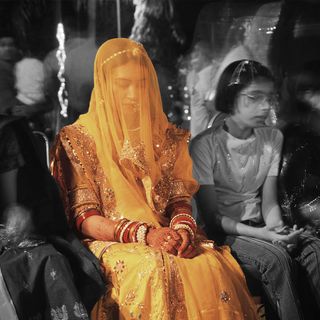Growing up, you’ll remember being taught about the existence of only two kinds of families in India: joint families, or nuclear, heterosexual, two-parent ones.
But the Maharashtra government is all set to change kids’ notions with a revised sociology curriculum: In schools operating under the state board, new sociology textbooks will now depict same-sex families and single-parent households, starting this academic year (2019-2020). The step has been taken to help students know about different kinds of families that have always existed, but were never spoken or taught about openly.
For instance, in a chapter titled “Twenty-First Century Families,” the Class 11 sociology textbook now includes single-parent families, live-in relationships, families with same-sex parents, and those with step-parents, Hindustan Times (HT) reports.
Some lines from the chapter on families read, “Younger generations, especially in many parts of Europe and in urban areas of India are preferring cohabitation as a family relation. This is especially true about same-sex couples … live-in relations or cohabitation might not lead to marriage.”
The curriculum goes beyond types of families. A line from another chapter reads, “In a historic verdict, the Supreme Court of India on September 6, 2018, decriminalized Section 377 of the IPC and allowed gay sex among consenting adults in private…” in a module on family, kinship and marriage.
Related on The Swaddle:
From Teachers to Textbooks: Gender Stereotypes in Indian Schools
The new textbooks also talk about gender equality and, “the blending of different cultural influences — a phenomenon known as cultural hybridization — in the age of social media,” added the Hindustan Times.
The confluence of cultures is illustrated with an example of a hijab-clad Barbie doll.
“These are the images that children see all around them, which interests them in knowing the underlying concepts,” Vaishali Diwakar, chairperson of the subject committee that framed the new curriculum, told HT.
The chapter on gender equity highlights issues such as equal pay, right to healthy living and participation of women in policy decisions.
The textbook also touches upon the concept of bullying and harsh language, by talking about reality shows and their tendency to normalize such behavior. It also has parts about the surge in divorce rates in the country and late-marriages, even touching upon individuals’ decisions not to get married. To highlight flexible work culture, the textbook talks about the availability and accessibility to laptops, mobiles and information technology with which any space can be turned into a virtual office.
Commenting on the revision and inclusion of these concepts, Dr. Joseph MT, an assistant professor in the department of sociology at the University of Mumbai, told HT that the textbooks will help develop the idea of plurality among students from an early stage. “Having said that, I think that teachers also have a great role to play in determining how a subject is taught. One cannot say that merely including something like this would directly influence the life choices of a person but showing that these realities exist is extremely important,” he added.




